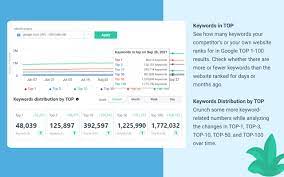
The Importance of SEO Page Rank
SEO page rank is a crucial factor in determining the visibility of a website in search engine results. Search Engine Optimization (SEO) is the practice of optimizing a website to improve its ranking on search engine results pages (SERPs). Page rank, a concept developed by Google co-founders Larry Page and Sergey Brin, plays a significant role in SEO.
Page rank is a numerical value assigned to web pages based on the quantity and quality of links pointing to them. The more high-quality backlinks a page has, the higher its page rank will be. A higher page rank indicates to search engines that the page is more authoritative and relevant, leading to better visibility in search results.
Improving your website’s page rank involves various strategies, including creating high-quality content, building backlinks from reputable websites, and optimizing on-page elements such as meta tags and headings. By implementing these strategies effectively, you can increase your website’s authority and improve its chances of ranking higher in search results.
It’s important to note that page rank is just one of many factors that search engines consider when determining rankings. Other factors include relevance, user experience, and mobile-friendliness. However, maintaining a high page rank can significantly impact your website’s visibility and organic traffic.
In conclusion, SEO page rank is an essential aspect of improving your website’s visibility in search engine results. By focusing on building quality backlinks and optimizing your content, you can enhance your website’s authority and increase its chances of ranking higher in search results.
Understanding SEO Page Rank: Key Questions and Answers
- What is SEO page rank?
- How is SEO page rank calculated?
- Why is SEO page rank important for a website?
- What factors influence SEO page rank?
- How can I improve my website’s SEO page rank?
What is SEO page rank?
SEO page rank refers to a numerical value assigned to web pages based on the quality and quantity of backlinks pointing to them. Developed by Google’s co-founders, Larry Page and Sergey Brin, page rank is a crucial aspect of Search Engine Optimization (SEO). Essentially, the higher the page rank of a webpage, the more authoritative and relevant it is considered by search engines. By understanding and improving SEO page rank through strategic link-building and content optimization, website owners can enhance their visibility in search engine results and attract more organic traffic to their sites.
How is SEO page rank calculated?
SEO page rank is calculated based on the quantity and quality of backlinks pointing to a web page. The algorithm developed by Google founders Larry Page and Sergey Brin assigns a numerical value to each page, with higher-quality backlinks from authoritative websites contributing to a higher page rank. Factors such as the relevance and authority of linking sites, anchor text used in the links, and the overall link profile of a website all play a role in determining its SEO page rank. By focusing on building high-quality backlinks and creating valuable content, website owners can improve their page rank and enhance their visibility in search engine results.
Why is SEO page rank important for a website?
SEO page rank is crucial for a website because it directly impacts its visibility and ranking in search engine results. A higher page rank signifies to search engines that a website is authoritative and relevant, increasing the likelihood of appearing at the top of search results. This visibility is essential for driving organic traffic to the website, attracting more visitors, and ultimately leading to potential conversions or sales. By focusing on improving SEO page rank through strategies like quality content creation and building reputable backlinks, websites can enhance their online presence and reach a wider audience effectively.
What factors influence SEO page rank?
When it comes to SEO page rank, there are several key factors that influence how a website is ranked on search engine results pages. Some of the most important factors include the quality and quantity of backlinks pointing to the website, the relevance and quality of the website’s content, the overall user experience and engagement on the site, as well as technical aspects such as site speed and mobile-friendliness. Search engines also take into account factors like domain authority, social signals, and on-page optimization elements like meta tags and headings. By focusing on these factors and implementing effective SEO strategies, website owners can improve their page rank and increase their visibility in search results.
How can I improve my website’s SEO page rank?
Improving your website’s SEO page rank involves a combination of strategies aimed at enhancing your site’s authority and relevance in the eyes of search engines. To boost your page rank, focus on creating high-quality, relevant content that addresses the needs of your target audience. Additionally, building a strong backlink profile by acquiring links from reputable websites can help increase your site’s authority. Optimizing on-page elements such as meta tags, headings, and internal linking structure is also crucial for improving SEO page rank. Regularly monitoring and analyzing your site’s performance and making adjustments based on data-driven insights can further aid in enhancing your website’s visibility and ranking in search engine results pages.
